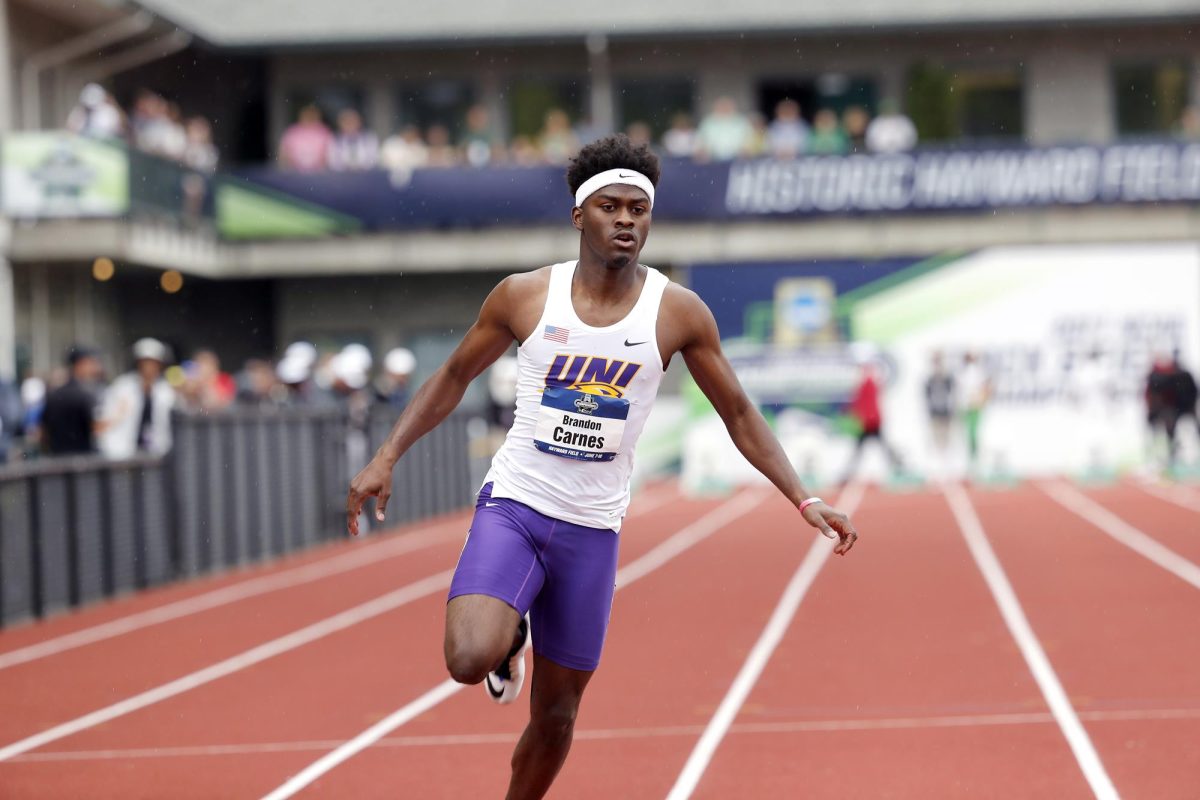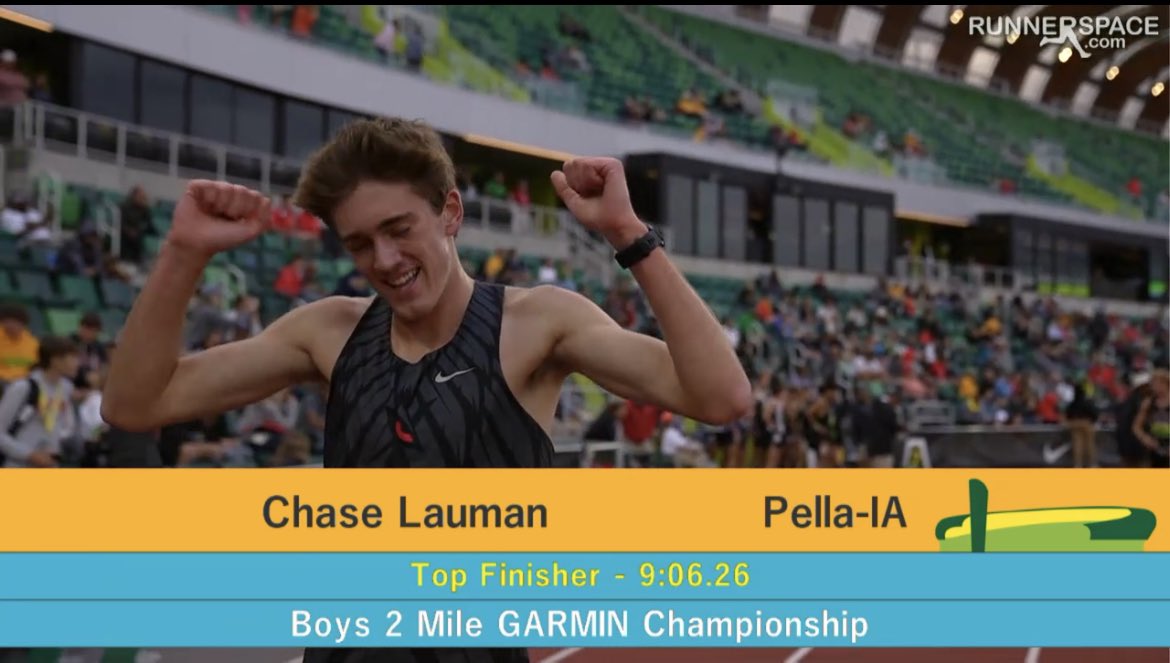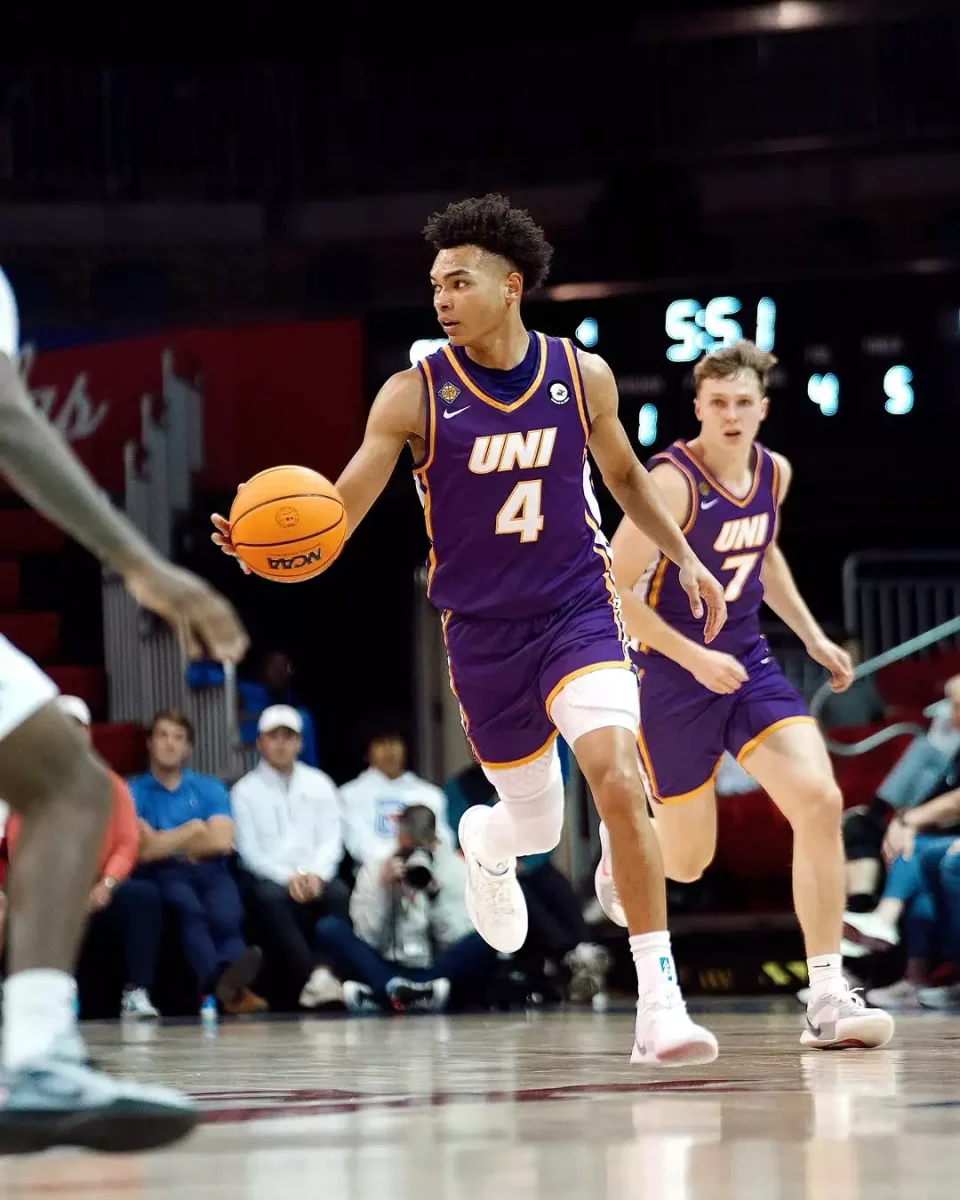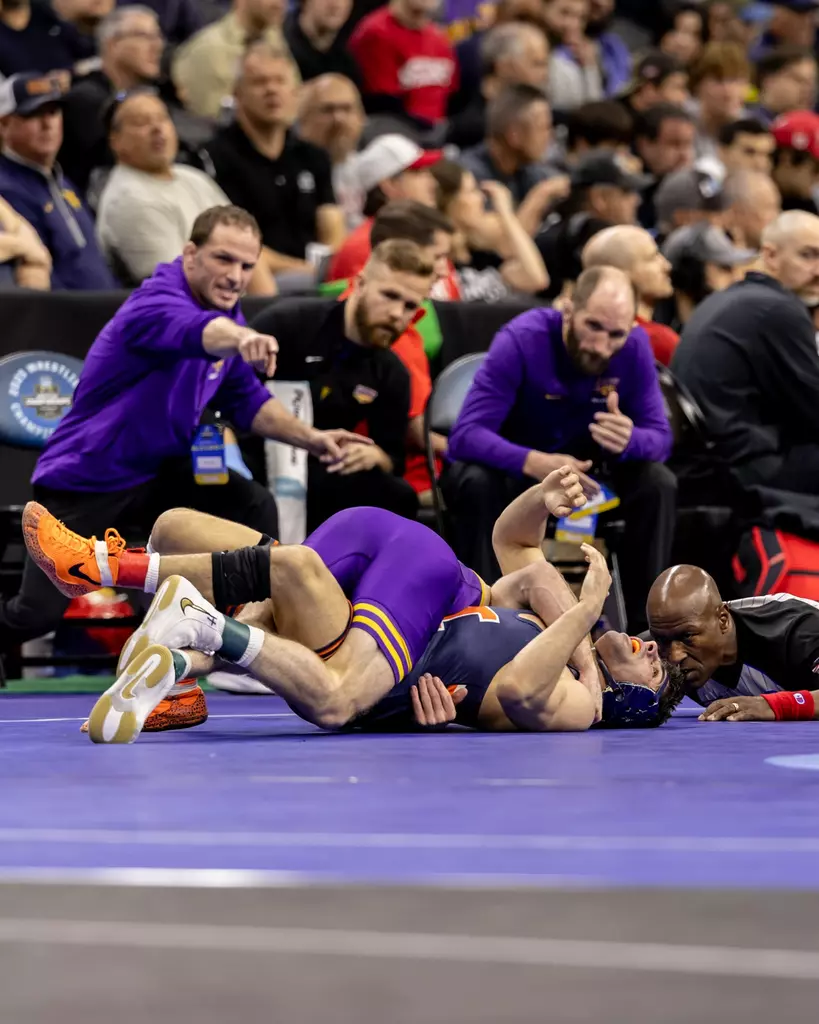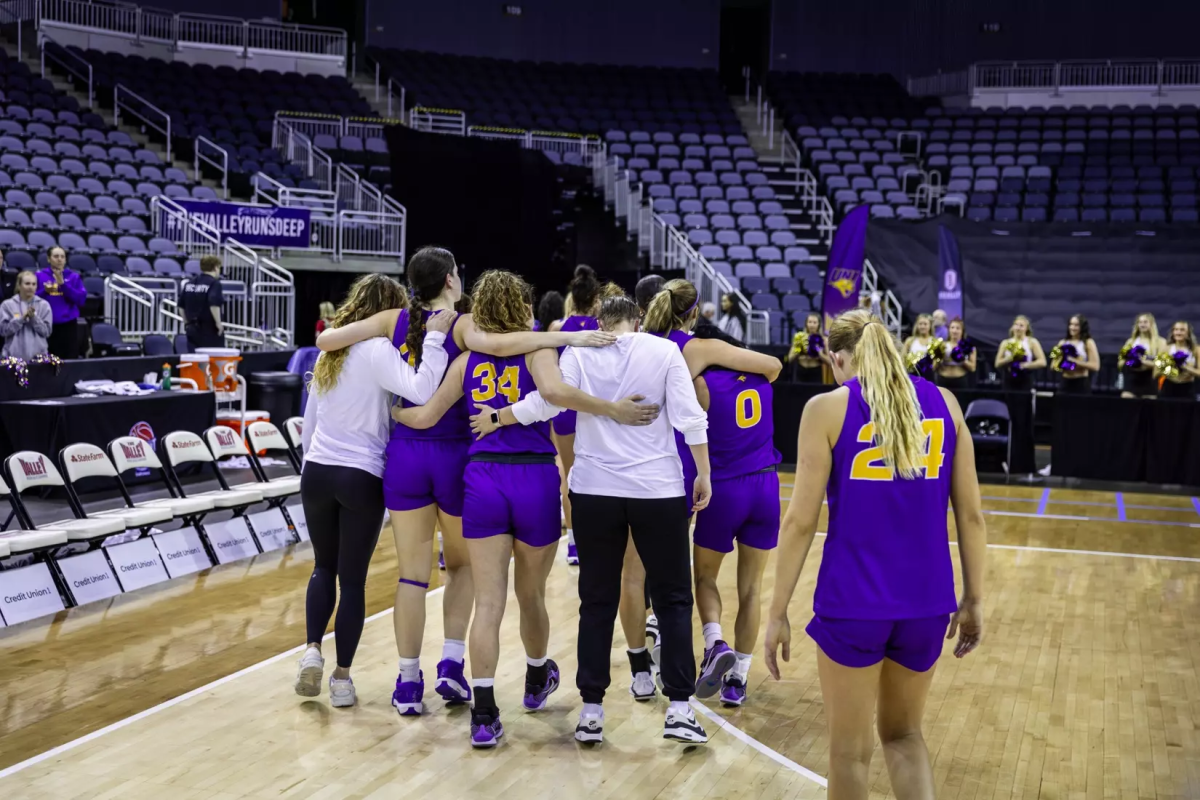Brandon Carnes, age 28, is an American track and field athlete, World Championship gold medalist and University of Northern Iowa alum. A multiple time All-American in the NCAA, Carnes continued to pursue his career in the sport post collegiately. As of Sept. 26, 2023, Carnes is ranked 18th in the world in the 100m dash, according to the World Athletics Organization. Recently, Carnes had a career defining moment when he finished fourth in the U.S. National meet.
This qualified him for the U.S. 4×100 relay team that would compete at the World Champions in Budapest in the late summer of 2023. The team, made up of track and field icons Noah Lyles, Christian Coleman and Fred Kerley in addition to Carnes, would go on to win first place, and set a new world-leading time in the event. Since the competition, Carnes has continued to compete in the latter stages of the 2023 season.
Once Carnes left the University of Northern Iowa, he experienced lack of support and had to “learn on the fly” in terms of how he would manage his training. Life for many track and field athletes after college can be challenging. With no coach in charge of you and no team to be a part of, accountability is often taken up by the athletes themselves in terms of training, lifting and everything else associated with their career. “I had to learn it on my own and endure,” Carnes said.
Carnes certainly endured many challenges that would hinder his success, such as moving to a new city and experiencing many injuries. Carnes adopted the ideology of enduring his circumstances despite the adversity placed in front of him. Many times he was close to giving up the sport entirely but his mentality of “staying positive and trusting the process” got him through it. Carnes gives a lot of credit to this mindset, as it has helped him see success many years into his career. For Brandon Carnes this mindset is what holds his career as an athlete together. To be positive throughout adversity a major contributor to Carnes’s success, even at age 28.
Carnes has found his own personal method of dealing with the inevitable self-doubt that comes with being a professional athlete. “Just finish” is Carnes’s mantra for when things get hard on the track. Whether it be a workout he feels is going to be tough to complete, or a lift he does not feel strong enough for, the phrase is how he reminds himself the end is closer than he thinks. Carnes adopted this mantra from the undisputed track and field legend Usain Bolt, where Carnes learned, “Even when you got one more and may need some extra rest, finish the workout.”
When asked who influenced him to be the man he is today, he struggled to narrow down the list. He learned from almost everyone around him, whether it be his mom, coaches or teammates. Who he wanted to be, however, was not clearly defined by a specific person. Like his self-reliance in his career, Carnes once again looked inward to establish himself and who he was. In his words, “Not having a perfect male role model (growing up) … I had to want to be a great positive role model.”
Carnes recognized the responsibility he had to develop and influence himself rather than a singular guiding individual leading the way for him. With so many people around him in his life, he figured the best course of action was to learn from others, but rely mainly on himself to “set the example.”
The wisdom Carnes has gained in areas like mental toughness, self-responsibility and endurance throughout adversity is beyond what many 28-year-old individuals possess. Carnes’ name in the track and field world has flown under the radar for the last decade, but has finally reached international and USA prominence. In typical UNI fashion, Carnes’s story follows a similar parallel to another Panther alum, Kurt Warner, who did not see his rise to fame until turning 29 and would go on to win two MVPs and a Super Bowl in the National Football League.
Naturally, football players are going to have more notoriety than track and field athletes because of the massive role they play in the U.S. Culture. For that reason, many more people know the name Kurt Warner and his story than Carnes’. At similar ages, Warner became a national icon while Carnes barely got attention from his alma mater and had only one feature piece about him from the Courier.
Both men competed at UNI, worked jobs unrelated to their careers to make ends meet, competed internationally and at small venues to keep doing what they loved and finally had their breakout moments at an age where many would often have them written off. It is, simply put, the story of the enduring underdog who finally gets his bone. It is a story people love because it inspires them to cut the limitations they set for themselves and go beyond.


